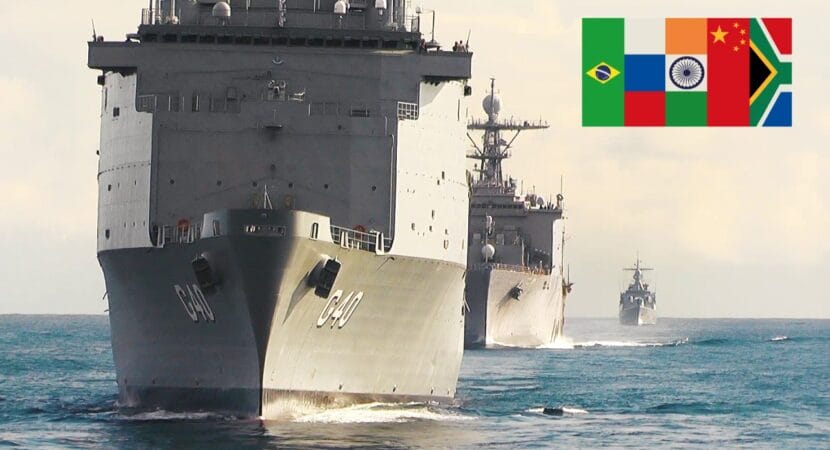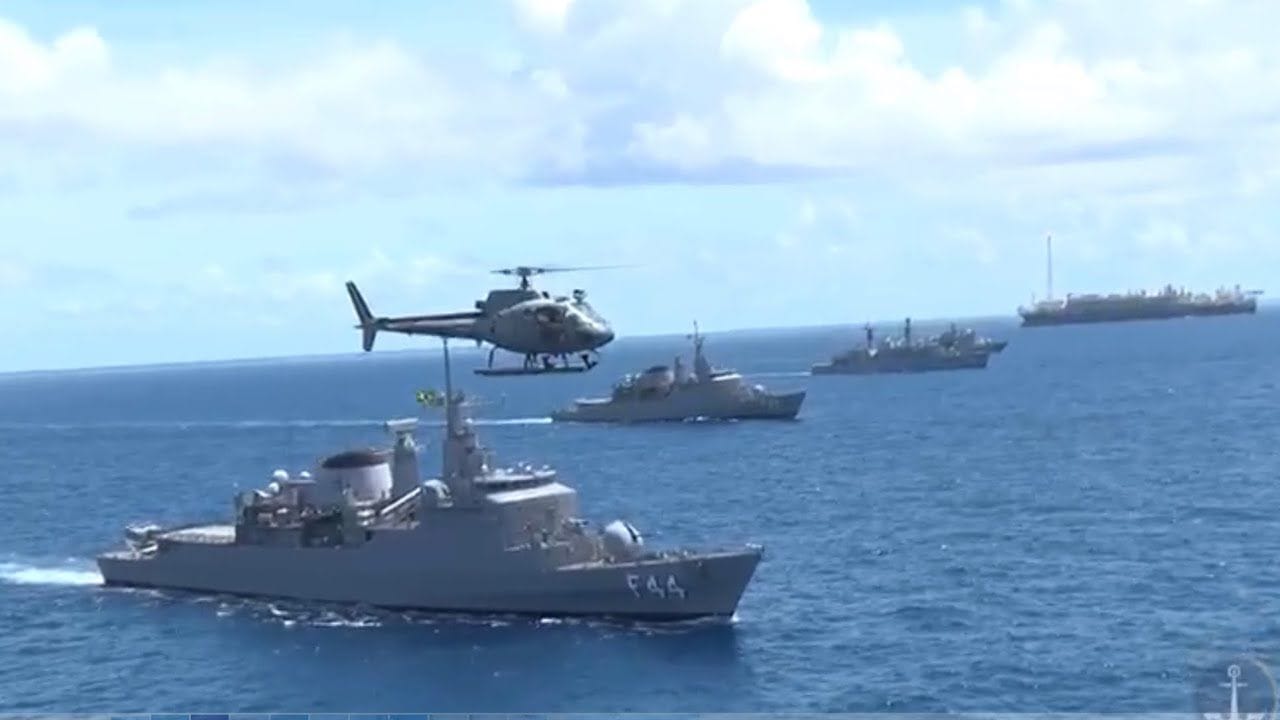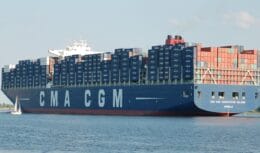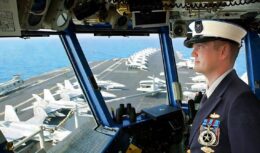
The Brazilian Navy strengthens its naval expansion with support from BRICS, standing out in technology and industrial capacity, aiming for sovereignty over the Blue Amazon and reinforcing its position as a regional naval power
The Brazilian Navy is on an ambitious journey of naval expansion, aiming to increase its manufacturing capacity for vessels of different sizes. In this scenario, BRICS member countries, especially China, play a fundamental role in the consolidation of Brazilian maritime strategy, aiming at autonomy and effective control of its territorial waters.
With an extensive coastline, Brazil is moving towards self-sufficiency in shipbuilding, developing small, medium and large vessels. This evolution not only expands Brazil's defensive capacity, but also demonstrates a significant investment in technology and innovation.
Strategic Cooperation with BRICS for the Brazilian Navy
Collaboration with BRICS nations, such as China and Russia, is crucial for Brazil. These partners offer experience and advanced technology, which can accelerate the development of the Brazilian naval industry and increase its presence on the international scene.
Projects such as Prosub (Submarine Development Program) and the Tamandaré-class frigates These are examples of ongoing modernization. These initiatives reflect Brazil's intention to update its fleet and improve its operational capabilities.
Challenges and opportunities for naval expansion
Despite advances, Brazil faces challenges, such as the need for greater public awareness about the importance of naval investments and budgetary limitations. However, partnerships with BRICS countries emerge as valuable opportunities to overcome these obstacles and strengthen naval infrastructure and technology.
BRICS support for the Brazilian Navy symbolizes an era of naval transformation and strengthening, crucial to protecting the country's vast coastline and maritime riches. With international collaboration and strategic investments, Brazil is positioning itself as a relevant naval power, ready to defend its interests and contribute to regional stability.
And what is the role of the Brazilian Navy??

The Brazilian Navy, an essential component of the Armed Forces, has the mission of guaranteeing the nation's defense, ensuring sovereignty at sea and contributing to the maintenance of internal order. Its role ranges from the protection of maritime borders to the execution of diplomatic and humanitarian tasks.
In addition to protecting Brazilian territorial waters, the Navy is responsible for safeguarding the natural resources of the Blue Amazon, the vast maritime territory that encompasses Brazil's exclusive economic zone. It also works to combat transnational crimes, such as drug trafficking and maritime piracy.
What about working in the Brazilian Navy?
Work in the Navy is diverse, encompassing naval operations, maintenance of equipment and infrastructure, marine scientific research, and community support activities. Sailors are trained to operate in different scenarios, both in times of peace and in conflicts, always ready to respond to national or international emergencies.
The Navy operates through a complex network of commands and units, including surface forces, submarines, naval air force, and marine troops. Its operations are planned and executed to ensure efficiency and readiness in protecting Brazil's maritime interests.
Control of the Brazilian Navy is under the authority of the President of the Republic, assisted by the Minister of Defense and the Commander of the Navy. The latter, a high-ranking officer, is responsible for the administration, preparation and employment of naval forces.









